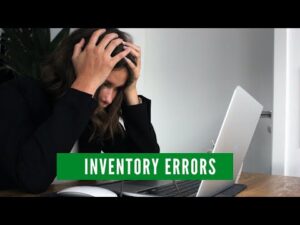
The amount you can spend depends on the available credit you have left. Equipment financing is a type of small business loan designed to help you buy equipment for your business. These loans cover any number of things, including office furniture, commercial ovens, medical equipment, computers, heavy-duty manufacturing equipment, and more. Funding is one of the first things to think about when it comes to your business.
Cash-flow statements show you how much cash your business has earned or used during a specific time period. If you’re using the cash accounting method, you can already see how much cash you have available. They’re a great way to check in on how your business is doing, make predictions about upcoming revenue and expenses, and periodic inventory system: methods and calculations decide when to invest in growing your business.
Deducting Business Expenses
It provides owners with a deep understanding of income, expenses, cash flow, and profitability, facilitating informed decision-making and identifying areas for improvement. Bookkeeping involves keeping track of your finances on a spreadsheet. At minimum, you need to track amounts, dates, vendors, and clients.
What Types of Records Do Small Businesses Need to Keep?
Paying yourself regularly gives you a better picture of your business’s overall health, and that can impact your business decisions going forward. Finder monitors does an expense appear on the balance sheet and updates our site to ensure that what we’re sharing is clear, honest and current. Our information is based on independent research and may differ from what you see from a financial institution or service provider. When comparing offers or services, verify relevant information with the institution or provider’s site. Kody Wirth is a content writer and SEO specialist for Palo Alto Software—the creator’s of Bplans and LivePlan. He has 3+ years experience covering small business topics and runs a part-time content writing service in his spare time.
Types of small business financing options

In this model, the funder buys a percentage of your future sales, then collects a percentage of sales each day by holding back a portion of your credit or debit card sales. Because sales can be high some days and low on others, there is no set term length. The disadvantage, though, is that outsourcing means your business’s financial information is being viewed by someone else, which you may or may not be comfortable with. Aside from that, you also have to consider what you might pay to hire an accountant on a full-time or part-time basis.
- Through Shopify Capital, merchants can get funding within days of being approved.
- Also, consider renting your office space to make relocation and expansion easier.
- That’s a lot of cash to have on hand, but saving a little at a time, perhaps 10% of your income in a separate high-yield business savings account each month, can help you reach your goal.
- When you outsource your bookkeeping, you can hire a freelance bookkeeper, a bookkeeping firm, or an online bookkeeping service.
- Accurate financial statements are the backbone of a business’s financial management.
- It can also include services like logo design or website development.
Now that you’re running your business like a well-oiled machine, it’s time to think about the future. If your small business has a team, managing payroll can become a real headache. The good news is there are tools that can make the process as quick and painless as possible. Whether you’re going it alone or hiring a financial professional, it always helps to seek advice from other successful entrepreneurs in your field or to consult with a good CPA. Financial statements might seem intimidating at first, but once you get a handle on them you’ll love the peace of mind that comes with having a strong grasp of your business’ finances. When you outsource your bookkeeping, you can hire a freelance bookkeeper, a bookkeeping firm, or an online bookkeeping service.
Companies may also report your payment information to other credit bureaus too, namely Experian Small Business and Equifax Business. Before you think about budgeting and forecasting, you need to set up your business finances. This guide covers mapping your startup costs, opening a bank account, setting up accounting and payroll, and much more.
Use a commercial loan calculator to easily calculate fixed-rate loans and then discuss your options with your bank. Also ask about its interest rates on the difference between accounts payable vs accounts receivable loans, the terms of its business loans and lines of credit, and what your small business would need to qualify for a loan. Business bank accounts, like personal accounts, come in different tiers that allow a certain number of transactions for a monthly fee.
Managing finances for small businesses differs significantly from larger corporations. Small businesses operate within limited financial resources, requiring cautious decision-making and cost-effective solutions. Owners are actively involved in day-to-day financial operations, gaining a closer understanding of the business’s financial health.

